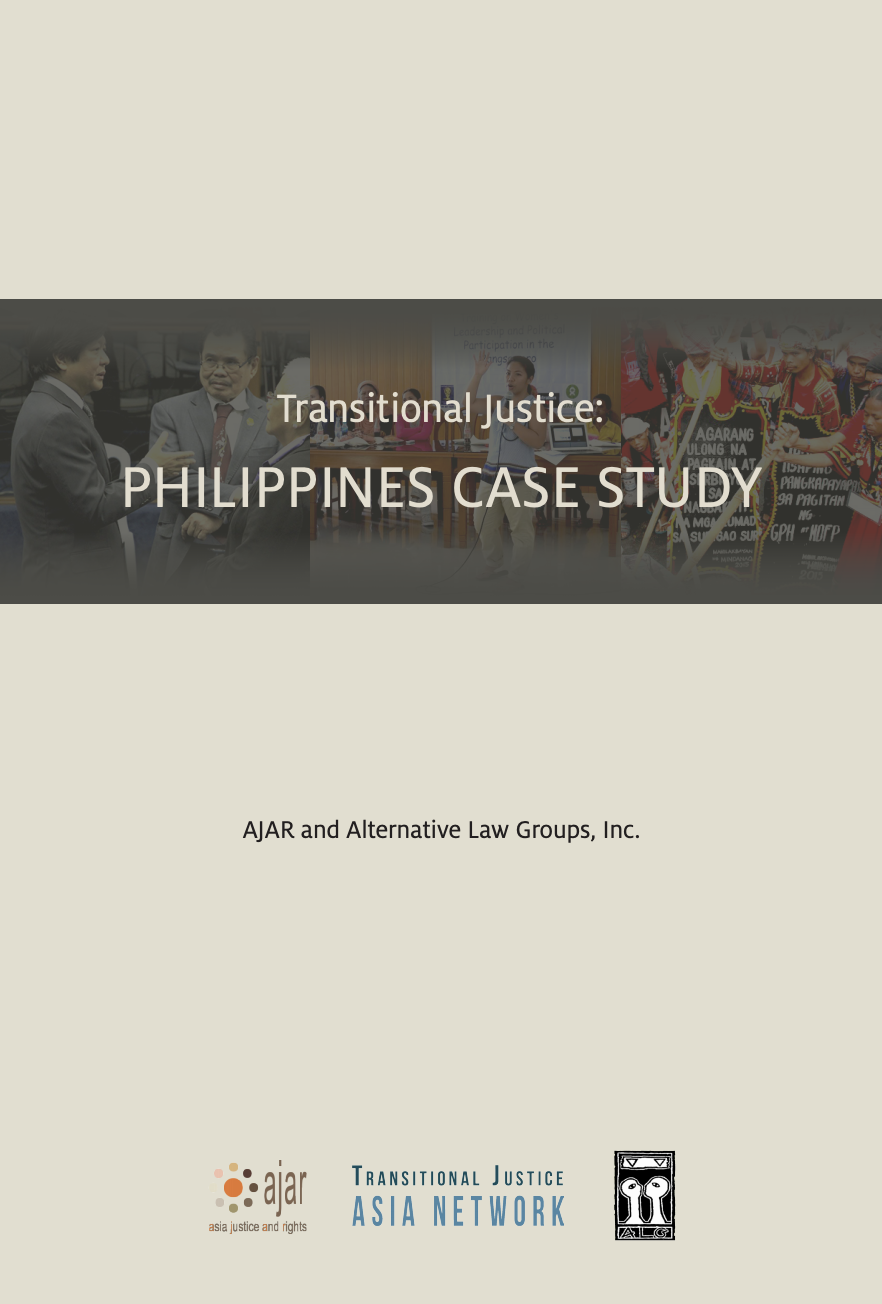After the dictator Ferdinand Marcos was ousted through the “People Power” movement in 1986, a wave of initiatives to address the violations committed by the Marcos regime (especially the period under Martial Law) came in its wake. Despite popular support, the transitional justice initiatives stumbled as they failed to address the fundamental institutional obstacles to justice. Three decades later, many of the Martial Law victims are still waiting for justice, the majority of the population still face the same old economic and social inequalities, and many parts of the country, especially Mindanao, remain as conflict areas.
The country’s long-standing armed conflicts with the communist movement and the Bangsamoro have roots in the dark years of the Marcos dictatorship and Martial Law period. During this time, massive corruption was ingrained deeply into the state institutions and remain practised up to this day. The People Power movement, which ousted the Marcos dictatorship, missed an opportunity to genuinely reform the institutions and laws as well as faced much opposition from the local elites.
In the aftermath of Martial Law, various efforts to reach transitional justice goals brought mixed results. This included judicial reforms, the establishment of truth commissions, compensation of human rights abuse victims, implementation of agrarian reform and others. The peace processes are at the very heart of these transitional justice efforts, specifically the negotiations with the communist and the Bangsamoro movements.
